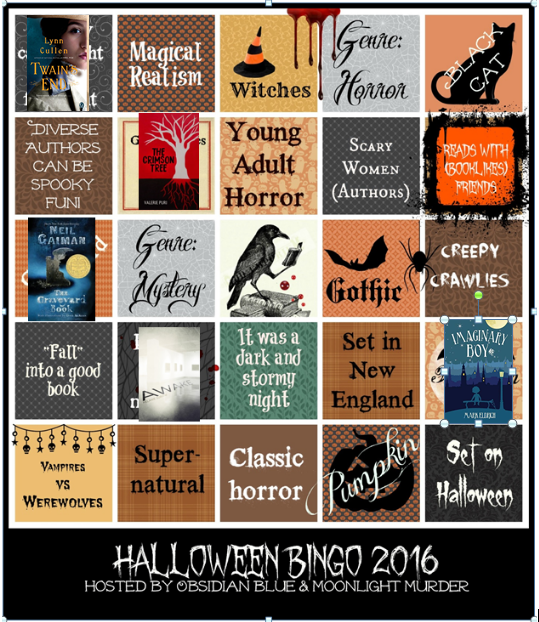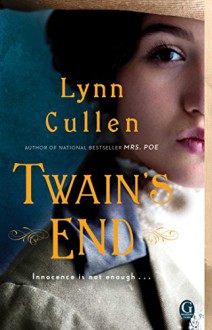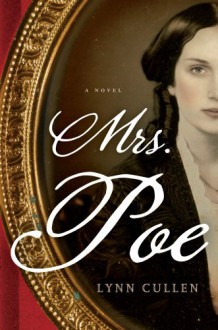
1845: New York City is a sprawling warren of gaslit streets and crowded avenues, bustling with new immigrants and old money, optimism and opportunity, poverty and crime. Edgar Allan Poe’s “The Raven” is all the rage—the success of which a struggling poet like Frances Osgood can only dream. As a mother trying to support two young children after her husband’s cruel betrayal, Frances jumps at the chance to meet the illustrious Mr. Poe at a small literary gathering, if only to help her fledgling career. Although not a great fan of Poe’s writing, she is nonetheless overwhelmed by his magnetic presence—and the surprising revelation that he admires her work. What follows is a flirtation, then a seduction, then an illicit affair…and with each clandestine encounter, Frances finds herself falling slowly and inexorably under the spell of her mysterious, complicated lover. But when Edgar’s frail wife, Virginia, insists on befriending Frances as well, the relationship becomes as dark and twisted as one of Poe’s tales. And like those gothic heroines whose fates are forever sealed, Frances begins to fear that deceiving Mrs. Poe may be as impossible as cheating death itself…
Amazon.com
Although I've been a fan of Poe's writing since first studying it in junior high, I actually knew little to nothing about the relationship between him and poet Frances Osgood before this book came out. Of course I was intrigued. Poe's life from any angle seems to be filled with mystery and oddity. And what's this of a scandalous extra-marital romance to boot? Do tell, Lynn Cullen!
If you're not familiar with the name Frances Osgood --- and you're not alone, she's fallen pretty well into obscurity these days -- she was a writer of Poe's time mostly known for her collections of poetry (often having botanical themes) and children's stories. Osgood met Poe while they both lived in New York, both married to other people -- Poe famously to his cousin, Osgood to portrait painter Samuel Osgood. Edgar & Frances also came to find out that they both originally hailed from Boston. Both being writers, a friendship and possible mild flirtation grew, and (from what I've read of the true history anyway) it seems that Poe's wife encouraged the friendship. That wouldn't make for a very gripping read though, I suppose. So in comes Cullen with Mrs. Poe. Holy Christmas, was there some creative license in this sucker!
In her author afterword, Cullen admits that while writing this novel, she wanted to vicariously explore what it might have been like to fall in love with Poe, through the character of Osgood. When you read up on the actual history of the two, you see just how deep Cullen got into her what-ifs! Yes, there were a series of poems published in the papers that many people of the time period saw as an open flirtation between Poe & Osgood. But while history leans toward the sickly Mrs. Poe most likely being okay with the friendship (perhaps because she felt herself nearing the end of her life and wanted the comfort of feeling that someone would be around to look after Edgar), Cullen puts a dark spin on wifey Poe, having her spillin' tea, throwin' shade and otherwise carrying out oops-did-I-do-that almost-murder plots against Osgood.
I was excited to get into this book but having now experienced it...ooohhh, I had some problems with it. For one thing -- and this might make me sound old-fashioned to some -- but I was a little bothered that this story seemed to be romanticizing, even glorifying infidelity. I thought maybe this story would be about Poe's wife putting her foot down and making it clear that's her man. There are moments where Cullen has you believe that's where the story is headed, but then the potential intensity is quickly snuffed out. Instead, we get Cullen's Poe persistently whining about his wife being annoying and childish... well, she's all of 23 and dying of tuberculosis. Even his mother-in-law points out that all his wife wants is wifely attention once in awhile, a caress or a cuddle here and there but he gets one look at much older Frances Osgood, whose novelized self I personally found about as exciting as stale crackers, and goes
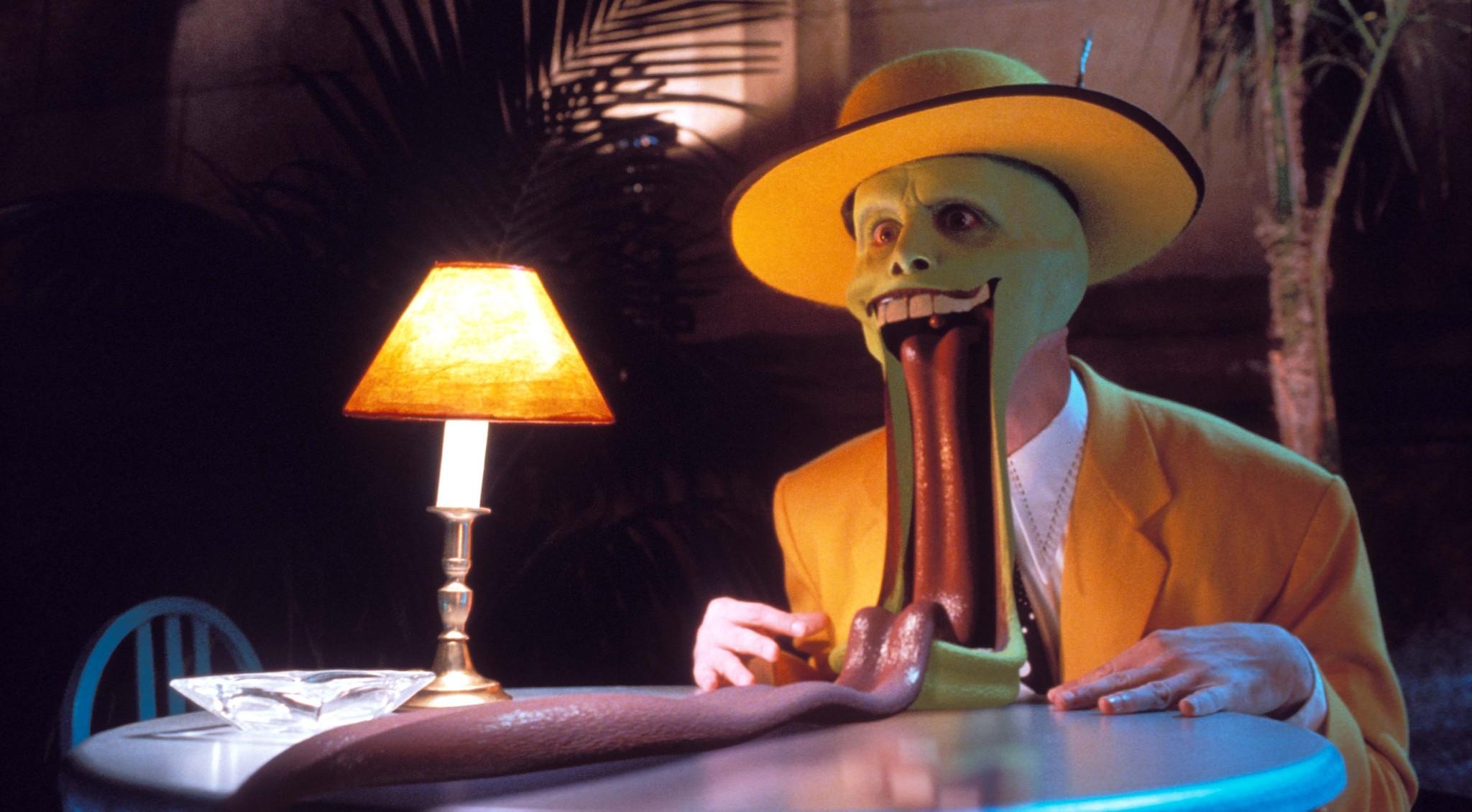
Mostly everything about these two in this story, at least romantically, just didn't work for me. Timing-wise, what with Mrs. Poe's imminent death looming in the background, their behavior was pretty tacky. Poe comes over for Christmas with a tree, Frances' husband suggests maybe taking it and setting it up for.. oh, I dunno... Mrs. Poe, maybe. Frances acts like her husband is being incredibly insensitive, but no, seriously, it's not a bad idea he's got there. The bad timing thing happens again with Frances and Edgar's final scene together. That one just had me silently screaming Seriously?! You're doing this now?!
I also felt like Cullen wanted to write something creepy, as a nod to Poe's style. Well, while there are moments of creepy, shady behavior from characters that you think / hope will turn into something darkly entertaining & intense, it ends up feeling like Cullen couldn't maintain that vibe. Instead you get a historical romance with just whispers of thriller that go nowhere (at least for me).
The points I give in Cullen's favor: 1) I like the inclusion of the story behind the development of Morse Code. It's just one little blip in the whole plot, but it was interesting. 2) I liked most of her environment / atmosphere building, though in some parts it did feel like she was running it into the ground a bit and 3) Sad to say, but my favorite part of the book was her afterword on the actual history that (VERY loosely, I've come to realize) inspired this novel.
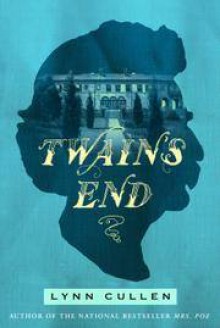 Basically: UGH NO, SAVE YOURSELF.
Basically: UGH NO, SAVE YOURSELF.
 Log in with Facebook
Log in with Facebook 
